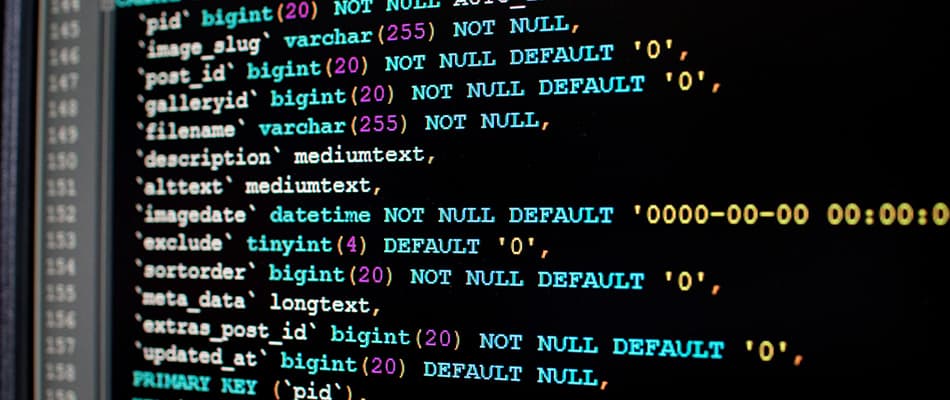What are the Components of Project Management? Understand the importance and Impact!
Project management involves planning, organising, and managing tasks to achieve specific goals. It helps teams use resources like time, people, and money effectively to complete projects successfully. To understand how project management works, it’s important to learn what are the components of project management. Each component plays a role in guiding a project from start to finish. By knowing these components, students can see how to keep projects on track, meet deadlines, and reach goals within budget.
What is Project Management?
Project management is the process of planning, organising, and managing tasks to reach specific goals within a set time. It involves using resources like people, tools, and money to complete a project successfully. While understanding what are the components of project management, it’s essential to know it includes setting clear goals, making a detailed plan, managing risks, and checking progress. Project managers ensure tasks stay on track and the team works well together. This helps finish the project on time and within budget. Good project management makes work more productive, reduces errors, and increases the chance of success.
Also, read our article on what is project management here.
Core Components of Project Management
We have understood the definition of project management, and now it is important to know what are the components of project management. These components work together to ensure projects are planned, managed, and completed successfully. Each component is crucial in helping project managers and teams meet their goals. By learning these critical parts, students can better understand how to handle projects from start to finish confidently.
Below are the core components of project management:
1. Project Scope
The project scope explains what the project will do and sets clear boundaries. It defines the tasks, goals, and deliverables so everyone knows what is included and what is not. This helps the team stay focused and avoid doing extra work. Managing the scope well keeps the project on track and meets the client’s needs without unexpected changes. It also sets clear timelines and helps everyone understand their roles.
2. Project Plan
The project plan is a step-by-step guide that shows how the project will be completed. It includes timelines, assigned tasks, and needed resources. A good project plan helps the team know who is responsible for each task and when it should be done. This keeps everyone on the same page and the project moving smoothly. It also helps track progress and make changes if needed.
3. Resource Management
Resource management is organising and effectively using people, tools, and materials. It ensures the project has what it needs to stay on time and within budget. Good resource management avoids delays and extra costs. By managing resources well, the team can work efficiently without running out of what they need. It also ensures that no one is overloaded with work.
4. Risk Management
Risk management means identifying potential problems during the project and planning how to handle them. It helps the team be ready for unexpected challenges so they don’t cause delays or issues. Good risk management also includes backup plans and ways to reduce the impact of problems. This keeps the project moving smoothly and gives the team confidence to handle issues.
5. Communication
Communication ensures everyone involved in the project stays informed and connected. This includes regular updates, meetings, and information sharing with the team and stakeholders. Good communication prevents misunderstandings and helps solve problems quickly. It ensures everyone knows what is happening and keeps the project on track. It also builds trust and ensures the team works well together.
6. Quality Control
Quality control ensures that the work meets the required standards. This includes checking the work regularly and making improvements if needed. Good quality control ensures that the project delivers what the client wants and is high-quality. It builds trust and helps the team produce their best work. Regular quality checks prevent significant issues and help keep the team motivated by maintaining high standards.
Know about quality management in project management here
Importance of Project Management
Understanding the significance of project management helps explain why it is essential for successful projects. Knowing what are the components of project management shows how good management can make a big difference in project outcomes. Project management helps teams plan, organise, and carry out tasks efficiently. It ensures that projects stay on schedule, within budget, and achieve the desired goals. This makes the process smoother and more effective for everyone involved.
Here are the ways that show the importance of project management:
- Keeps Projects Organised – Project management helps teams stay organised by creating clear plans and timelines. This ensures that everyone knows what to do and when to reduce confusion and makes the work smoother.
- Better Use of Resources – Proper project management efficiently uses time, money, and tools. This helps avoid waste and ensures the project stays within budget while using available resources most effectively.
- Helps Meet Deadlines – Project management sets clear deadlines and helps keep the project on track. This means tasks are completed on time, preventing delays and helping meet the final project deadline.
- Improves Teamwork – Good project management improves communication and coordination among team members. It ensures everyone is on the same page, which helps build trust and makes working together more productive.
- Manages Risks – Project management helps teams prepare for risks by identifying potential problems early. This reduces the chance of significant issues and keeps the project running smoothly, even when challenges arise.
- Ensures Quality – Project management checks the work regularly to ensure that it meets quality standards. This means that the final result is what the client expects and is done to a high standard.
What is a Project Management Plan?
A project management plan is a document that explains how a project will be managed from start to finish. It guides the team, showing the steps to reach the project’s goals. The plan includes timelines, tasks, resources, and budgets. Understanding this plan helps answer the question of what are the components of project management, as these parts are included in the plan. A good project plan keeps everyone organised and on schedule, making sure tasks are done on time and within budget. It also helps manage risks and makes teamwork easier by clearly explaining each person’s role. This helps the project run smoothly and meet its goals.
Impact of Project Management on Projects
Project management is essential for making projects successful. It helps teams plan, organise, and complete tasks well, leading to better results. Knowing what are the components of project management is helpful because it shows how each part makes a project run better. Good project management guides a project from start to finish, ensuring it meets its goals, stays within budget, and is completed on time. This makes the work process smoother and more dependable.
Below is how project management impacts projects:
- Improved Organisation – Project management helps plan and organise tasks well. This makes it easier for teams to stay organised, focused, and transparent about their responsibilities.
- Better Resource Use – Using time, money, and tools becomes more straightforward with project management. This helps reduce waste and keeps the project within budget.
- Clear Communication – Project management helps team members and stakeholders communicate better. This prevents misunderstandings and helps solve problems quickly.
- Risk Management – Project management helps spot and handle possible risks early, leading to fewer surprises and a smoother project process.
- Higher Quality Outcomes – Regular checks and quality control ensure the project meets high standards, which results in better outcomes and happier clients.
- On-Time Delivery – Project management sets clear deadlines and helps keep the project on track, making it more likely to finish on time.
Learn Project Management with Digital Regenesys
Digital Regenesys offers a complete Project Management course aimed at helping students and working professionals gain essential skills for success in this field. The course covers critical concepts like project planning, execution, monitoring, and closing. It also introduces essential tools and techniques for smooth project management. By joining this course, students will learn how to manage projects well. They will learn to finish projects on time and stick to the budget. Working professionals can also improve their skills, which will help them in their current jobs or prepare them for new ones. In the previous section, we learned what are the components of project management. Take a look at the benefits of joining this course:
- Expert Instructors – Learn from experienced teachers who know the industry well. They will share helpful tips to help you learn better.
- Flexible Learning – Study when it suits you. You can go at your own pace and fit your lessons around your other activities.
- Practical Skills – Get hands-on practice with tools you can use immediately at work. This will help you feel more confident.
- Networking Opportunities – Meet other students and professionals. Building these connections can help your career.
- Recognised Certification – After completing the course, you will receive a certificate. This shows that you have gained new skills and improved your resume.
Get insights on why study project management course here
Hence, this article helped in understanding what are the components of project management and why they are essential for project success. Each component plays a role in keeping projects organised, on track, and ensuring they are completed on time and within budget. To learn these skills and secure a confident role, consider joining the Project Management course at Digital Regenesys. With expert guidance, hands-on training, and a recognised certification, this course can help you build your project management skills.
What are the Components of Project Management? – FAQs
What is project management?
Project management is planning, organising, and managing tasks to achieve specific project goals effectively.
What are the components of project management?
The core components include project scope, project plan, resource management, risk management, communication, and quality control.
Why is project management important?
It helps teams stay organised, use resources wisely, meet deadlines, and maintain quality, ensuring successful project completion.
What is a project management plan?
It is a document that outlines how a project will be managed, covering tasks, timelines, resources, and budgets.
How does project management impact projects?
It improves organisation, resource use, communication, risk management, quality outcomes, and on-time delivery.
Recommended Posts













